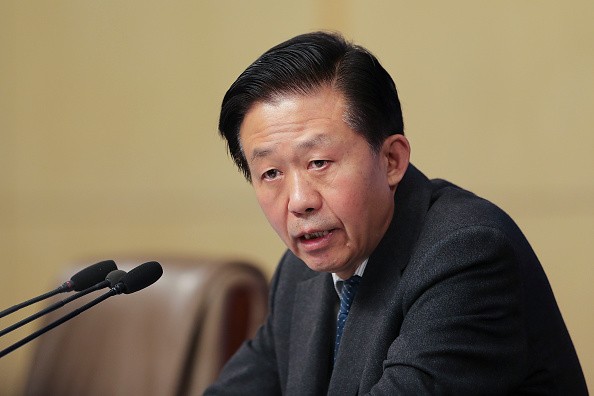China's Finance Minister Xiao Jie has canceled a meeting with his Japanese and South Korean counterparts and returned to China citing an emergency domestic meeting, Japan's Finance Minister Taro Aso said on Friday.
"I heard he could not attend the meeting because he had to deal with important policy issues," Aso told reporters after the meeting, which coincides with the annual conference of the Asian Development Bank in Yokohama.
Instead, the Chinese delegation was led by its deputy finance minister and a senior official from the Chinese central bank, the People's Bank of China (PBOC), for a trilateral summit where finance officials from the three countries discussed anti-protectionist measures, a Japanese finance ministry official said.
An official from China's finance ministry's international department confirmed Xiao's absence from the meeting but declined to comment.
Xiao's sudden departure from the meeting has led to widespread speculation among analysts, although the general consensus was that it had nothing to do with the ongoing tensions between China and Japan.
Andrew Collier of Orient Capital Research, a Hong Kong research firm, told Forbes in an interview on Sunday that while there were "no murmurs out of Beijing," the "unusual" move by Xiao could either indicate be an impending movement on either China's interest rates or the value of the yuan.
While China's currency is currently holding steadily against the U.S. dollar, April was the third consecutive month that the yuan has not moved more than 0.22 percent against the greenback.
"One or more Chinese financial institutions could be in trouble again due to the latest commodity turmoil," according to a report from online financial news aggregator ZeroHedge, citing that the current lack of volatility is similar to the lull prior the devaluation of the yuan in Aug. 2015.
The site also noted that Xiao's return to China took place as commodity prices in the country were at their lowest in over a year and as Chinese equities dropped to three-month lows.
"We should not be surprised that high Chinese officials are attending emergency meetings. There will surely be many more of these gatherings in the next few months," Gordon Chang, a trustee from Cornell University specializing in the Chinese economy, wrote in a column in Forbes on Sunday.



























